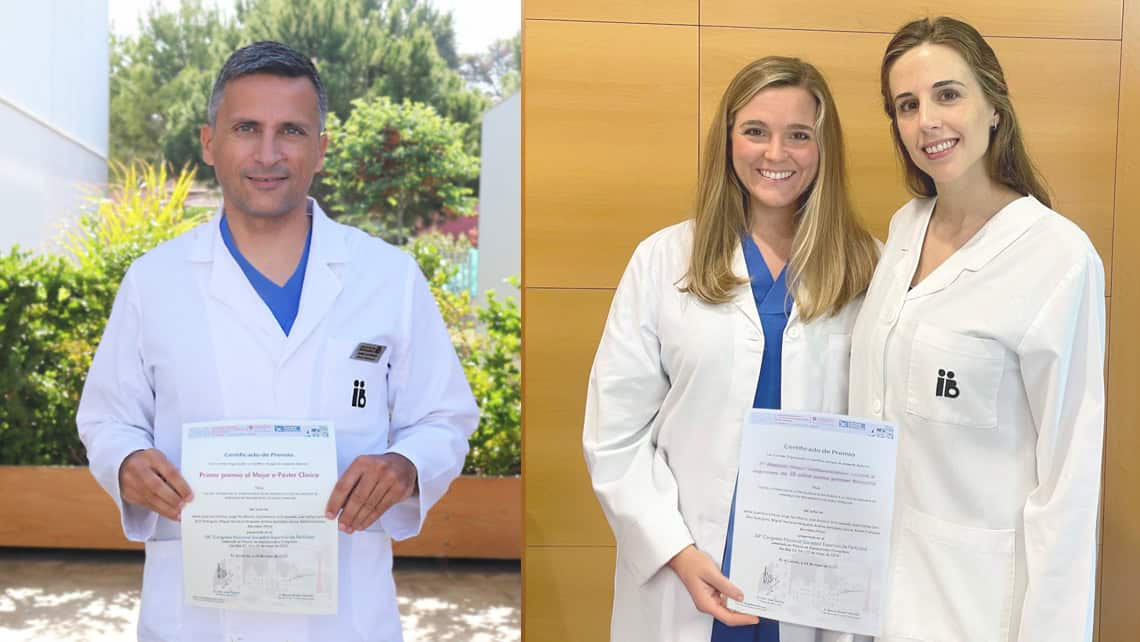Two research projects by Instituto Bernabeu, awarded at the SEF 2024 congress.
30-05-2024

- The research led by Dr Esperanza de la Torre and the researcher Jaime Guerrero won the award for best clinical communication to people under 35 years of age and best clinical poster communication.
- They focused on endometrial compaction and recurrent implantation failure in double gamete donation.
- The Instituto Bernabeu team has broken its own record this year, presenting a total of 29 scientific research papers.
The Spanish Fertility Society has held the 34th edition of its biannual congress. A must-attend event in the calendar for reproductive medicine professionals from all over the country, and this year Instituto Bernabeu attended with a total of 29 studies in poster, oral communication and paper format, beating its own record.
During the congress, which brought together more than a thousand professionals from all over Spain, Dr Esperanza de la Torre, from Instituto Bernabeu Madrid, and researcher Jaime Guerrero, from Instituto Bernabeu Alicante, received awards for their studies on endometrial compaction and recurrent implantation failure in double gamete donation.
Dr Esperanza de la Torre has received the first prize for best clinical communication to people under 35 years of age as first author for her study on the importance of endometrial compaction in reproductive outcomes, which was defended at the congress with a keynote speech by Dr Sofía Olalla. Preliminary results of the study, which is still ongoing, indicate that endometrial thickness around implantation is not predictive of pregnancy rate and outcome. ‘These results are very interesting and reaffirm the current practice of limiting ultrasound monitoring to the first phase of the cycle,’ said Dr de la Torre. Furthermore, ‘we have observed that, with the modified natural cycle preparation, it is extremely rare to find low levels of progesterone in the blood, and that even in these circumstances they do not seem to have an impact on reproductive outcomes, unlike what happens in the artificial cycle’.
Thanks to this study it will be possible to avoid unnecessary controls such as ultrasound scans in the second phase of the cycle and, probably, blood progesterone controls in the natural cycle.
On the other hand, researcher Jaime Guerrero has won the prize for the best clinical poster communication on the prevalence of recurrent implantation failure (RIF) based on the cumulative pregnancy rate in double donation treatments. Recurrent implantation failure is an issue that has aroused great controversy in recent years, from its diagnosis, through treatment options, to its very definition.
The lack of consensus on what RIF is has made it difficult to delimit its diagnosis and also to establish its real prevalence. The problem in this situation is the risk of overdiagnosis, which implies overtreatment, with additional interventions, many of them without scientific evidence to justify their use. Given this diversity of criteria, the Instituto Bernabeu team estimated the prevalence of RIF based on a population with a good prognosis, which in this case received embryos from double gamete donation.
The main findings were that the probability of gestation did not decrease with successive attempts, so that implantation failure associated with endometrial factor seems to have a lower incidence than traditionally thought.
